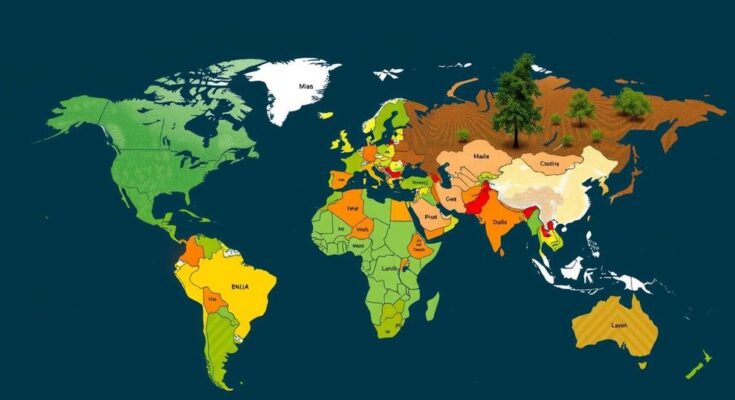Wealthier countries are starting to compensate poorer nations for climate-related damages, with a focus on “loss and damage” funding to assist communities impacted by severe weather events. In Malawi, families affected by Cyclone Freddy have begun receiving cash grants to rebuild their lives. However, experts warn that the pledged amount of $720 million is likely insufficient as climate change intensifies. Ongoing negotiations seek to establish clear guidelines for fund distribution at the COP29 summit.
Wealthier nations are increasingly providing financial assistance to poorer countries to help them recover from the devastating impacts of climate change. One recipient of this aid, Christopher Bingala from Malawi, faced the destruction of his home due to Cyclone Freddy and received a $750 payment to help rebuild. This type of compensation, known as “loss and damage” funding, addresses the disproportionate challenges faced by low-income countries, which contribute minimally to global emissions but suffer greatly from climate-related disasters. While approximately $720 million has been pledged by affluent nations, experts caution that this amount may be insufficient, given the escalating frequency and intensity of climate events.
Vital discussions are ongoing at the COP29 climate summit regarding the distribution of funds aimed at supporting developing nations in their recovery efforts. Global leaders emphasize the necessity for wealthier countries to acknowledge their responsibility in contributing to climate change and to support the most vulnerable populations. As these nations navigate the financial burdens imposed by increasing extreme weather events, the urgency for effective funding mechanisms for loss and damage becomes even more pressing.
Malawi has emerged as a pilot program for this new funding approach, where cash grants have been distributed to several families impacted by the cyclone. This initiative illustrates how targeted financial support can aid communities that lack safety nets like insurance and offers insight into the larger global strategy of compensating poorer nations for climate change effects. Experts warn that without timely and adequate funding, the financial strain on these countries will only increase, with potential costs estimated to soar to $250 billion annually by 2030. Successful implementation of loss and damage funding mechanisms is essential to ensure that developing countries can effectively manage the repercussions of climate change while simultaneously fostering resilience in the face of future disasters.
The significance of climate change compensation for developing nations stems from the disparate impacts felt by low-income communities. These regions, which contribute minimally to global greenhouse gas emissions, face the harsh realities of rising sea levels, severe weather events, and environmental degradation. Consequently, wealthier nations have recognized their role in financing recovery efforts for vulnerable populations. At last year’s UN climate summit, an agreement was reached to establish a fund dedicated to addressing loss and damage, acknowledging the financial prerequisites for rebuilding and adaptation in affected areas. This has sparked discussions on how best to allocate resources, ensuring that the funds not only provide disaster recovery but also promote resilience and future preparedness.
In conclusion, the urgent need for loss and damage funding has become increasingly clear as climate change continues to devastate low-income countries like Malawi. The provision of financial assistance to rebuild lives and communities affected by disasters is a critical first step in acknowledging and addressing the responsibilities of wealthier nations regarding their contributions to climate change. The discussions at COP29 will be crucial in finalizing the mechanisms for distributing the pledged funds. Ultimately, for global solidarity to be effective, it is imperative that affluent countries take action now to support vulnerable populations facing the brunt of climate change’s impacts.
Original Source: www.wosu.org




